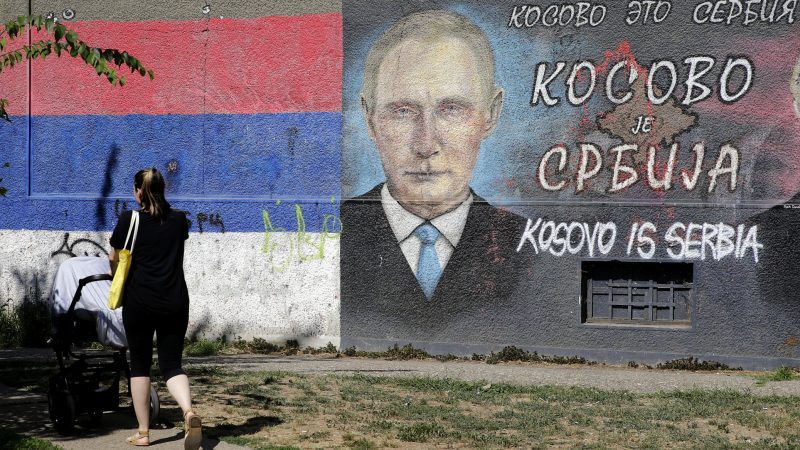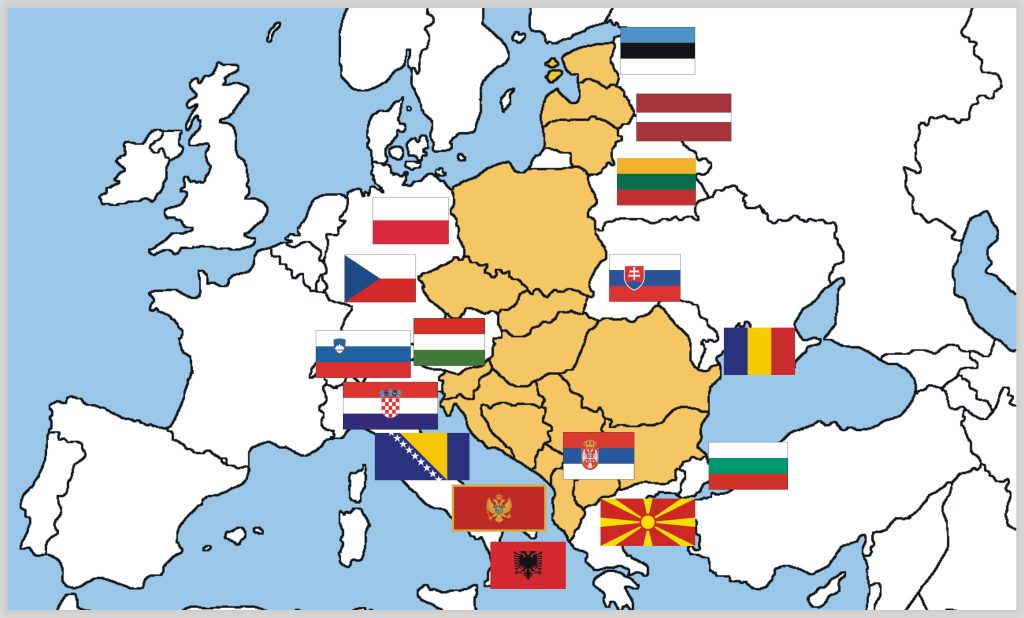The Balkan region has always been an area of conflicting interests and great power rivalry. Throughout modern and contemporary history, the area has witnessed an intense competition among major European and Eurasian powers, chiefly the Ottoman, Austro-Hungarian, and Russian empires. Today, apart from the European Union, the three most important non-EU actors that enjoy significant interests in the region are Russia, Turkey, and – ever increasingly – China. Specifically, countries like Russia and Turkey bear significant historical, cultural, and economic ties with the area, which are – particularly in the former case – in contrast with the EU’s Balkan strategy.

In the case of Russia, each initiative pursued in the Balkan region is aimed at halting NATO’s ongoing expansion, which is often followed by EU membership. As the EU High Representative stated in 2017, Moscow’s presumable goal is to loosen the Balkan region’s connection to the EU, presenting itself as an alternative to what it perceives, especially after Brexit, as a dissolving union. In this sense, Russia profits by Serbia – its main supporter in the Balkans – to undermine pro-Western dispositions in the neighbouring countries of Bosnia-Herzegovina, Montenegro, and North Macedonia, often using “divide and rule” strategies to convince Eurosceptic sectors of local societies. Since the 2014 annexation of Crimea, Russia started looking at the Balkans from a zero-sum game, where any achievement for the West would represent its loss. Accordingly, Russia’s chief features connected with its Balkan policy include the will to obstruct the expansion of NATO and the EU, the perception of the region as a mirror reflecting its relations with the West – with accommodating or conflicting attitudes in relation to the West’s behaviour –, and to take advantage of divisions within and between regional actors. Moreover, Russia can rely on two assets in the Balkans: the first is its rather spread popularity – specifically in Serbia, Republika Srpska, Montenegro, and North Macedonia –, since parts of society, particularly those with nationalist and conservative leanings, perceive it as a counterweight to the liberal West; the second is taking advantage of endemic issues such as the state capture, the low levels of political accountability, the high levels of corruption, and the unfortunate condition of the media. Furthermore, Russia supplies the major part of gas demand in Serbia, North Macedonia, and Bosnia, which can translate into political influence.

As for Turkey, its involvement in the Balkans has gradually increased in the last two decades. Turkish major investments in the region include development aid, infrastructure policies, foundation of cultural centers and universities, restoration of Ottoman sites, and encouraging businesses. Although Turkish influence focuses mainly on countries with a large Muslim community (i.e., Bosnia, Albania, Kosovo, and somewhat North Macedonia), it is also increasing – quite surprisingly – in Serbia, a country traditionally characterized by anti-Turkish sentiments. Turkey’s use of soft power in the region is witnessed by the activities of institutions like the governmental Turkish Cooperation and Coordination Agency (TIKA), which has participated in the renovation of Ottoman heritage sites, and by the creation of several Turkish-language schools and universities across the region. Moreover, for geographical reasons, Turkey plays a fundamental role in the issue of migration connected to turmoil in the Middle East: for instance, in the past years, the Balkans have been the main route to the EU for Syrian refugees arriving via Turkey. In terms of economic investment, Turkey remains a secondary partner since Turkish foreign direct investment is primarily targeted at EU member states rather than at Balkan countries. Notwithstanding, the three priority countries for Turkey in the Balkans stay Albania, Bosnia, and Kosovo. In Albania, Turkey is investing for the realization of major economic projects among which the reestablishment in 2018 of a national Albanian airline – which ceased its operations in 2011 – and the construction of the Namazgah Mosque, the biggest in the Balkans; it is also closely cooperating in the military field, supporting the Albanian’s army reform and training within the frame of the common NATO membership. In Bosnia and Herzegovina, Turkey advocates the creation of Turkish universities and schools, the conservation of the Ottoman cultural heritage, and the inclusion of the country in the Euro-Atlantic institutions; it also upholds a trilateral consultation mechanism between itself, Bosnia, and Serbia, implementing an advanced system of trade diplomacy in the region. Finally, Turkey has been a steadfast recognizer of Kosovo’s independence – despite the potential implications regarding Kurdistan – and has been an active mediator in normalizing the Kosovar relations with Serbia. The main difference with Russia is that, instead of opposing it, Turkey upholds the EU and NATO membership of Balkan countries. In this sense, Balkan countries tend to perceive Turkey not as an alternative to Western countries, but rather as a useful add-on, seeking its favour in controlling migration, bringing Caspian gas in the region, and securing investments.

Finally, China, which already represents the second largest global economy, is gradually reshaping its foreign policy attitude, applying a more assertive international role that unveils stronger geopolitical ambitions. In this context, the Balkans represent an area of increasingly significant importance for Chinese economic and geopolitical projection. Specifically, China has become an “unexpected” regional player because of its Belt and Road Initiative (BRI), since this project – which entails the creation of network of infrastructural connections both by land and by sea across Eurasia – finds in the Balkan countries a geographical connector between the Mediterranean and Central Europe and a geopolitical bridge between Western Europe and the wider Eurasian landmass. China’s presence in the region is characterized by a mix of soft power initiatives and economic-infrastructural investments. Today, all Balkan countries except Kosovo – whose independence China does not recognize – are part of the 16+1initiative, aimed at facilitating the movement of Chinese goods from several ports in southern Europe to northern Europe via the Balkans. China’s loans and investments for financing infrastructural projects are highly encouraged in Balkan countries, since they are not subject to strict compliance regulations that are difficult and expensive to undertake. Serbia appears to be China’s biggest partner in the Balkans, if not in Europe: this partnership has also been enshrined by the Chinese support to Serbia’s claims on Kosovo and the Serbian support to China’s unitarian policy vis-à-vis Taiwan, Hong Kong, Tibet, and Xinjiang. Like for Turkey, and unlike Russia, China is interested in the full integration of Western Balkan countries into the EU, believing that this process could make its local investments safer and increase its ties with Brussels.
Paolo Pizzolo

[…] dell’Ue resta quindi quello di affermare il suo ruolo nella regione dove, invece, appaiono sempre più presenti Russia, Cina e Turchia, conseguenza, questa, anche dell’indecisione con cui Bruxelles ha gestito finora la questione […]